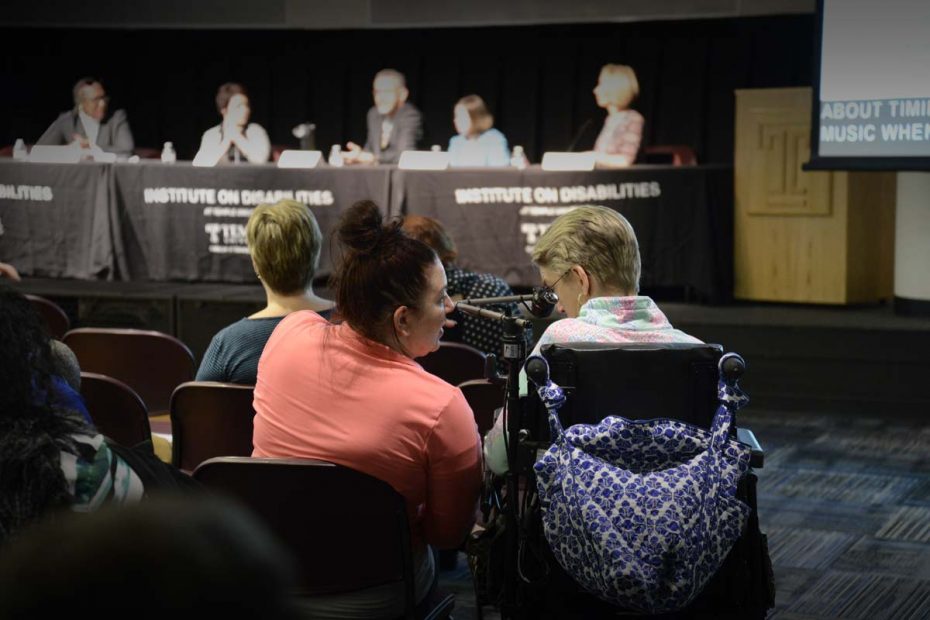The program at Temple University acknowledges medical and diagnostic realities but our program’s focus is the questioning of ideas and meanings of disability. Disability Studies uses critical theory to analyze origins and hierarchies of differences in bodies and minds and how they are embedded and encoded in institutions, policies, philosophies, culture, and traditions. Therefore, Disability Studies at Temple University takes a critical lens to ideas about disability like, for example, the ideas of “normal,” and “dis-order.”
Disability Studies, as part of the Institute on Disabilities and College of Education and Human Development, is committed to social justice and elevating the voices of lived experience. Our program celebrates a positive disability identity, a rich disability history and culture, and promotes disability advocacy, inclusion, justice, and equity. We affirm that disability is a natural part of the human condition and disability is referential to what it is to be human. We celebrate and affirm the lived experience of every body/mind. And we embrace those body/minds with an awareness of our human interdependence.
This blog is a space for the Temple Disability Studies Community to critically explore disability, challenge antiquated able-ist notions and promote disability justice. With a critical lens we will explore disability culture, disability policy, and disability research. We may also post news of interest to the community.
Disability Studies @ Temple blog adheres to the following values:
- Respect for each person’s individual experience of embodiment/en-mindedment and respect for each person’s lived experience at the intersection of other cultural identities including individuals with multiple disability identities.
- Respect for the perspectives of those who are disproportionately impacted.
- Respect for all without promoting the hierarchy of disability.
- Respect for our collective interdependence.
- Respect for diversity of cultures, disciplines, and thoughts.
